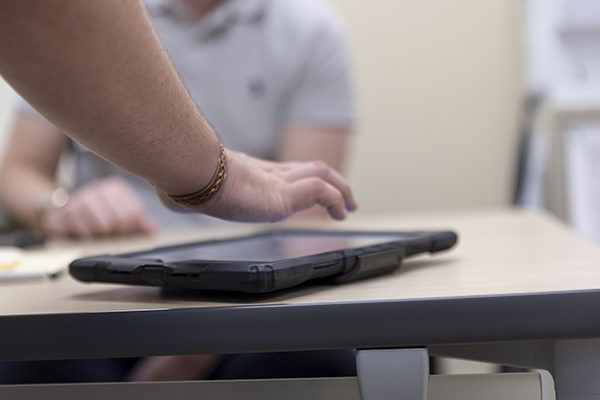C2SHIP- “Using Contactless Sensors to Remotely Monitor Falling.”

C2SHIP- "Using Contactless Sensors to Remotely Monitor Falling."
Dr. Alisha Johnson from the University of Missouri School of Nursing is collaborating as a Co-Investigator with Dr. Marjorie Skubic from University of Missouri College of Engineering and Dr. Shu-Fen Wung from the University of Arizona College of Nursing (PIs) to conduct a study to evaluate the potential use of contact-free passive sensing to continuously monitor older adults for falls sponsored by the Center to Stream Health in Place (C2SHIP), an NSF consortium.
Falling is the second leading cause of death from unintentional injuries worldwide and the greatest number of fatal falls occurs in adults older than 60 years of age. Approximately 20-30% of older adults who fall will suffer moderate or severe injuries, such as hip fractures and head injuries. Older adults who fall and suffer a disability are at a major risk for subsequent long-term care and institutionalization. Although various existing studies focus on fall detection with individual sensors, such as wearable ones and depth cameras, the performance of these systems is still not satisfying. This project constitutes a collaboration between Nursing and Engineering at the University of Missouri and the University of Arizona with industry partners, Signify (formerly known as Philips Lighting), Best Buy Health, and assisted living facilities, TigerPlace Assisted Living in Missouri and Via Elegante Tucson Mountains in Arizona, to use innovative ambiance-based light-embedded radar sensors to provide a robust and sensible technological solution to remotely monitor falls in real-world settings. With advances in sensor technology and machine learning, this project promises to revolutionize the way falls are detected in older adults resulting in greater, freedom, fewer injuries, and increased feelings of safety for older adults and their caregivers.